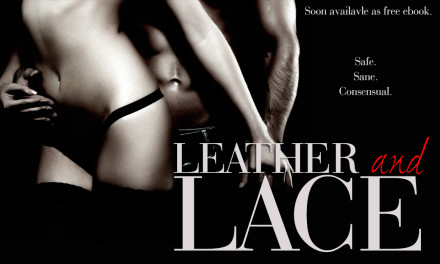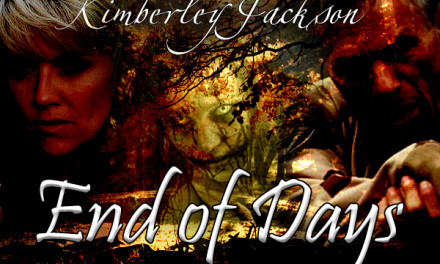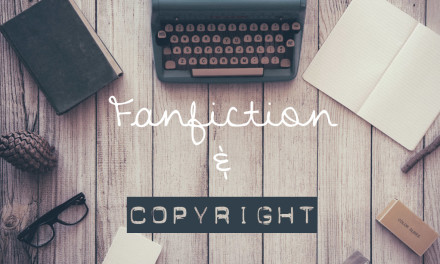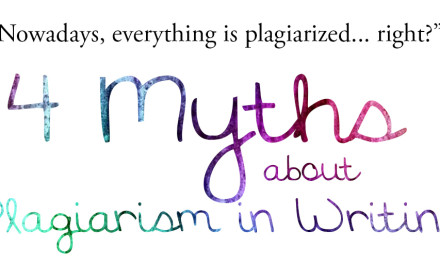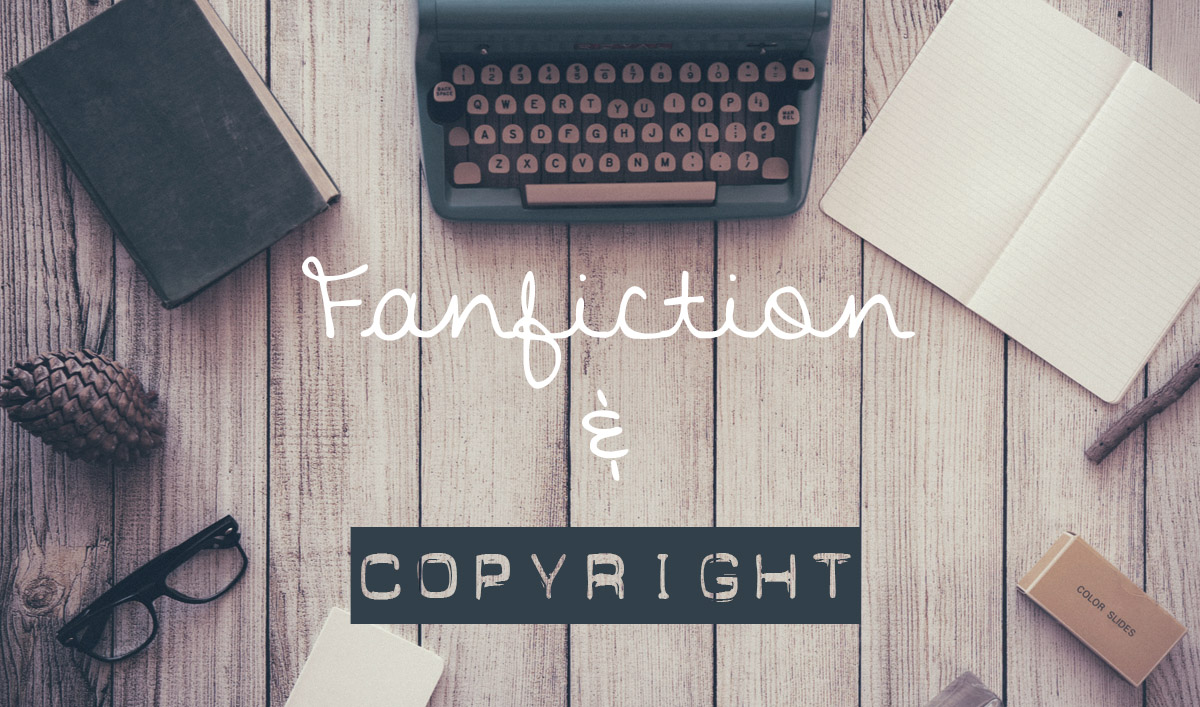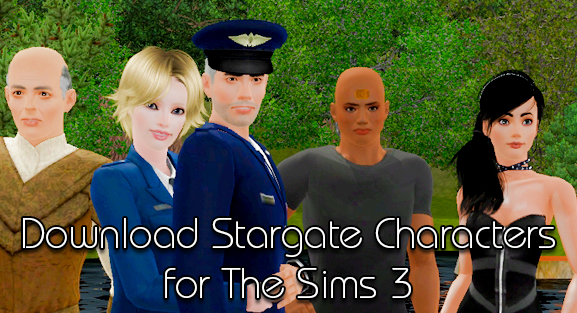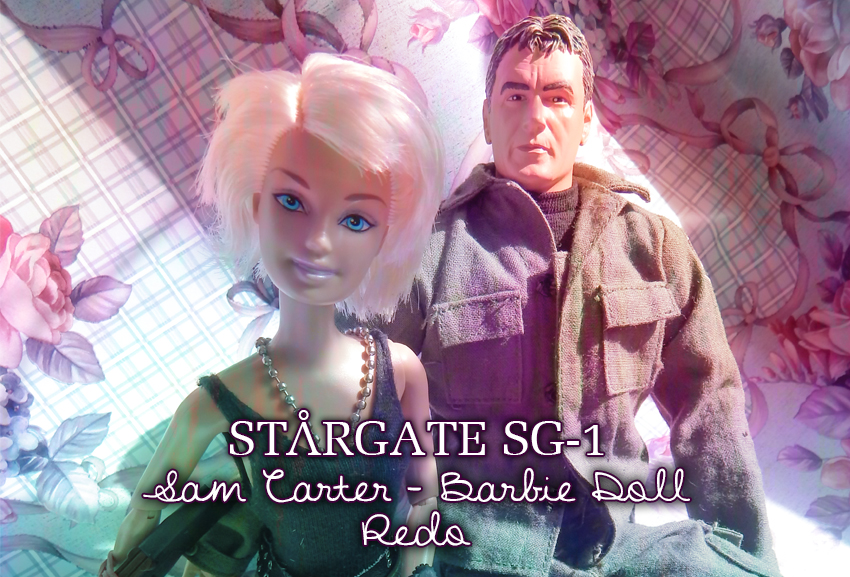Photo: fotolia / Scisetti Alfio
Writing… it’s one of the cheapest, yet most rewarding activities out there. It thrives from our imagination. Everything is possible.
If you’re a writer like me, you surely have come in contact with other writers. And each of them undoubtedly had his or her own little toolkit. Sometimes those toolkits were quite extensive (and frankly, intimidating).
The best authors I’ve met though, among them French bestselling author Marc Levy and English poet John William, told me they use very little. Over the years (and frankly, due to a lack of funds) I’ve adapted to that philosophy. So here’s a little overview of the basic things I need and use for writing. (Along with a little list at the end of what I think one definitely doesn’t need.)
-
Writing Software
One of the most basic tools. Or, if you don’t have a computer, you can just use a traditional typewriter, or paper and a pen…
However, I would presume that most authors use computers nowadays. I strongly advise against going for one of those fancy programs that advertise to have been specifically designed for novel writers. I used to try a lot of them, and they overcomplicated the writing process.
First of all, often you’ll have compatibility issues if you need to convert your manuscript to PDF or other formats—which, quite simply put, is time you’ll have to spend on technical stuff that you could just as well spend on writing. Secondly: It’s unnecessary. The only purpose is to shovel money into the pockets of the makers. And it will distract you from what writing is really about: your story.
For the longest time, writers had nothing but a piece of paper and a pen to create their masterpieces. And look at the masterpieces they created. You don’t need fancy overpriced software that claims to do the work for you… It is wasting your money.
The program I use is really simply Microsoft Office Home and Student 2013, which cost me about 120 US dollars and comes with Microsoft Word, Excel, PowerPoint and OneNote. You can also go for OpenOffice or LibreOffice, both of which are free and work just as well. Personally, I need the OneDrive cloud integration so I can write on the same document on my iPad when I’m away from home without having to move the file.
I also sometimes like to use DarkRoom, which is a very simplistic text editor. Basically a black screen with yellow or green writing on it. No formatting, no paging, no spell-check… just me and my story. I started out writing on an old C64 computer (running DOS) in the 1990s, so for years I had nothing but the black screen and yellow writing. So whenever I use DarkRoom, I feel like I’m going back to the roots. ;)
-
A Thesaurus
Use with caution. There’s a right way and a wrong way to use a thesaurus. A wrong way is definitely using it for every second word.
A right way is to use it for inspiration and general extension of your vocabulary. Which means: everyday use for language practice. According to linguistic research, adult native speakers of English have an active vocabulary of around 25.000 words. Out of around an estimation of 1 MILLION English words. Active vocabulary refers to the words that you use in everyday life. You are able to understand a lot more, but you won’t use them because your brain hasn’t added them to your active vocabulary.
A thesaurus is an excellent way for a writer to improve and expand vocabulary. But it’s also useful for writing crutches. (Don’t even pretend you don’t have them. Even Stephen King has them. ;) )
I often come across words, sentences or phrases, I keep using over and over and over again. I call them the favorites of doom, because as good as they may sound, if you hear them ten times in one chapter, you just want to scream “Enough!”. So it’s useful to come up with variations.
It’s even harder for me, since I’m not a native speaker of English. So I often rely on my thesaurus, especially on my bad writing days when I’m so overtired that my vocabulary seems to consist of only ten words. ;)
I use: Oxford’s Paperback Thesaurus (Because it was recommended to me in my first creative writing class) and Oxford’s American Writer’s Thesaurus (which aims more towards writers of fiction)
-
A Grammar Book – a GOOD one!
I’ve met a lot of authors (usually amateurs) who proclaim they don’t have, nor need, nor use a grammar book when writing.
I’ve also studied linguistics. And I remember my one professor who was in his fifties and had spent studying and teaching English grammar all his life. The one thing you never saw him without was his 1000+ page book of English grammar. Noam Chomsky, one of the most accomplished researchers of the English language doesn’t know all the rules of English grammar.
So let me clarify once and for all: as an author you DO NEED a grammar book. Language is our tool, and even if contemporary writing doesn’t always have to be grammatical (especially in dialogue), we want to be sure of what we’re doing. If I break a grammar rule, I better know how and why. And usually I can only do that if I have a chance to look up the rule.
Set aside that a lot of our everyday language is, in fact, grammatically incorrect.
A Little Detour Into the World of Grammar
Subject and Object
The number of authors who don’t know the concept of simple grammatical features such as a subject and an object leaves me speechless. The result is sentences like:
It was the first time he had seen Tina and I together.
Though often used in oral language, the correct form would be an object pronoun: Tina and me. The subject of the sentence is he. In the same way as you would use an object pronoun in a sentence like “It was the first time he saw me.” Nobody would ever say “It was the first time he saw I“, would they?
Whereas a sentence like “Tina and I saw him for the first time” is correct, since in this case Tina and I make the subject of the sentence. I is a subject pronoun. Me is an object pronoun. The difference between subject and object is that (in active clauses) the subject makes the active component of the sentence. Whereas the object is the person or thing who or which something is being done to.
I eat the cake.
I = subject (active), cake = object.
Simple as that.
If you don’t know the difference between an object and a subject, though, I seriously wonder what you’re doing trying to be a writer because apparently you don’t have the slightest interest in the basic concepts of language. (Sorry for the bluntness. But I wouldn’t trust someone to build a house if they didn’t know the difference between a hammer and a screwdriver. ;) )
Passive
Another case is the widely misused phrase ‘passive’. To be honest, it confused the hell out of me the first time my beta readers started using it–apparently because I’m one of the few people who actually knows what a passive is. For many authors any construction involving the form to be is apparently a passive. Um… no.Take the following sentences:
- The book was given to me (by the salesman). (Passive) <–> The salesman gave me the book. (Active)
Correct. This is indeed a passive and should be avoided in fiction writing. (Whereas it’s standard in academic writing!) Note that passive means nothing else than a reversal of subject and object. Above I stated the functions of the two in active clauses.
In passive clauses, the subject becomes the thing or person that’s being done something to. The book is given. In passive constructions, it’s often irrelevant who does the action. In this case, it’s not important who gave me the book. The stress is that it is in fact given to me. Additional information about the active part is usually added through the use of by (in this case, by the salesman).
- As I was walking down the street, the car crashed into the pedestrian.
No. Not a passive. I don’t care how much you insist that was walking is passive because there’s a form of be in there. Was/Is +ing is actually the progressive tense, which is used to indicate simultaneity. Meaning, two actions happen at the same time. One action is in progress, while another one sets in.
Though many writers argue that you can achieve a faster pace by not overusing a progressive, there are a lot of instances where it’s necessary to express what you want to say.
- It wasn’t as bad as I’d feared it would be.
No. Not a passive. This is actually a copula–which is the simple sentence structure of is + adjective. The tree is green. The sky is blue. (green and blue being adjectives) While one could argue that my examples with the tree and the sky are very flat and should definitely done better in fiction writing, there are instances where a copula makes sense. And it’s still not a passive. ;)
Who vs. Whom
Yet another case of grammatical confusion is the use, or misuse, of who and whom. You wouldn’t believe how many native speakers of English claim to understand it—but really don’t. Usually the same type self-confidently claiming they don’t need a grammar book. I’ve fallen victim to countless of them–before I learned to rely on grammar books instead of people.
Simply put, who takes on the role of a subject in a relative clause. Whom refers to an object. Examples?
The man who wore a red shirt saw the accident. (WHO!)
This is actually two sentences:
1. The man wore a red shirt.
2. The man saw the accident.
In both cases, the subject is the exact same person. Same subject, ergo: who.
The man whom I met yesterday wore a red shirt. (WHOM!)
Again, two sentences.
The man wore a red shirt.
I met him yesterday.
or, if you want it differently.
I met the man yesterday.
He wore a red shirt.
In the first case, the subject is the man or he. In the second sentence the subject is I, and the man is referred to as an object, him. Two different subjects. Ergo: whom.
So much for my little detour into English grammar. Kudos to grammar books, linguistics classes and my Acient Latin teacher at high-school.
I think I made my point. ;)
—
Long story short: If an acclaimed linguistics professor who spent his whole life studying the rules of English doesn’t go anywhere without his grammar book, because, in his own words, the English language is too complex to know all the rules, then we as authors DEFINITELY need one as well.
I use: Longman Student Grammar of Spoken and Written English (Douglas Biber, et al.) which also features examples from creative writing for every chapter and paragraph, as well as exceptions to the rule. With 450 pages it’s more than enough to satisfy the needs of an author. The unabridged version was designed for linguists and includes a whole lot of terms that only linguists would understand. So unless you studied linguistics, you might want to go for the abridged ‘student’ version.
Also very useful is the book Grammar for Fiction Writers by Chris Saylor and Marcy Kennedy. Though not as extensive as Longman’s Grammar, it contains a very important section: which rules you can and should break in fiction writing.
I’ve come across a lot of writers recently telling me that fiction writing always has to be grammatical. (“Don’t write any fragments.” “Don’t start sentences with conjunctions.” etc.) That’s a myth, and a lot of contemporary bestsellers disagree with that opinion. Cara McKenna and Cherise Sinclair for example use a lot of un-grammatical sentences, and very short sentence structures. And they do it masterfully. It works, because they apply Deep POV, which usually goes so deep into a character’s mind that even non-dialogue should reflect the character’s voice.
Fiction writers have the liberty to break grammar rules, as long as there’s a purpose. So don’t just get a book on grammar rules, but also get one that tells you which ones you’re allowed to break.
-
A Self-editing Software
This is optional, and it’s one of the luxuries I allow myself to have—mostly because of necessity. There are advantages as well as disadvantages to using this software. A lot of programs are so complex that even understanding how they work already gives you a headache. Also many lack sufficient integration with popular text processors, so that you have to use standalone programs into which you have to copy and paste parts of your text to then scan and edit it. And that takes up a huge amount of your time. Almost all of them give you a huge number of false positives. But they will help you some.
The one I started using is ProWritingAid, because it integrates flawlessly with Microsoft Word as an Add-In. It’s simple. I am, by nature, a lazy person, so any overcomplicated stuff that takes away time from me being able to actually write or edit becomes a bother to me.
One click on the “Start Analysis” button in WORD, and ProWritingAid shows me some of the most common mistakes and overused words (such as adverbs, repeated sentence starts, etc.) It does show many false positives – especially where grammar is concerned.
But it points out long, complex sentences and offers me the option to put in my own set of words that I have a tendency to overuse. So it’s a great help in my self-editing stage.
Grammarly is another one of those programs, but after doing trials for nearly all of the programs out there, I found that ProWritingAid suited my needs best.
-
OneNote
Since I already paid the money for my office suite, I figured I might as well use this program that came with it. And now I can’t remember how I organized my notes before using OneNote. OneNote allows me to collect notes, snippets, etc. in something akin to a scrapbook. (Evernote is a competitor program.)
I use it for writing down story ideas or quotes and passages that come to mind. I use it for detailed research and link collections. And I also use it to store and save my favorite quotes from books that I’ve read—which is extremely useful because the notebooks are searchable. So it’s easy to find a note again by entering a search term.
Microsoft’s OneDrive integration allows me to have the same notebooks on my computer and my iPad, and whenever I make changes on either device, the files will be synced live.
-
Inspiration
That’s all. Really. ;)
Now, as for the things you don’t need: I already touched on the subject when I talked about text processing software.
- Fancy programs.
Really, don’t waste the money. They do nothing that a simple word processor won’t do. And gadgets like Write or Die, etc. might be fun, but mainly they’re a superfluous luxury. If you wanna be a writer, write. Don’t let clever marketers tell you that what you have isn’t enough. All you need is in your head, and in your fingers. - Writing Guides.
Oh, there are tons of them. Probably thousands. Stephen King’s On Writing is one of them. And while it’s one of the very few I’d actually recommend, King himself say in the very first chapter: You don’t need this book. And you really don’t.I know so many authors who spend their valuable time on reading books on How To Write instead of doing some actual writing. And most of those How To Write books were written by authors who, according to their credentials, have never published a fictional book themselves.So it all leaves me with a shallow taste, really. Is writing being devalued so much that a large majority thinks you don’t have to actually do it in order to know how to do it?
If you want to learn to write, write. And read. That’s the only advice I’ve ever gotten from acclaimed authors. None of them ever told me: read guides on how to write. ;)
List may be expanded in the future.

